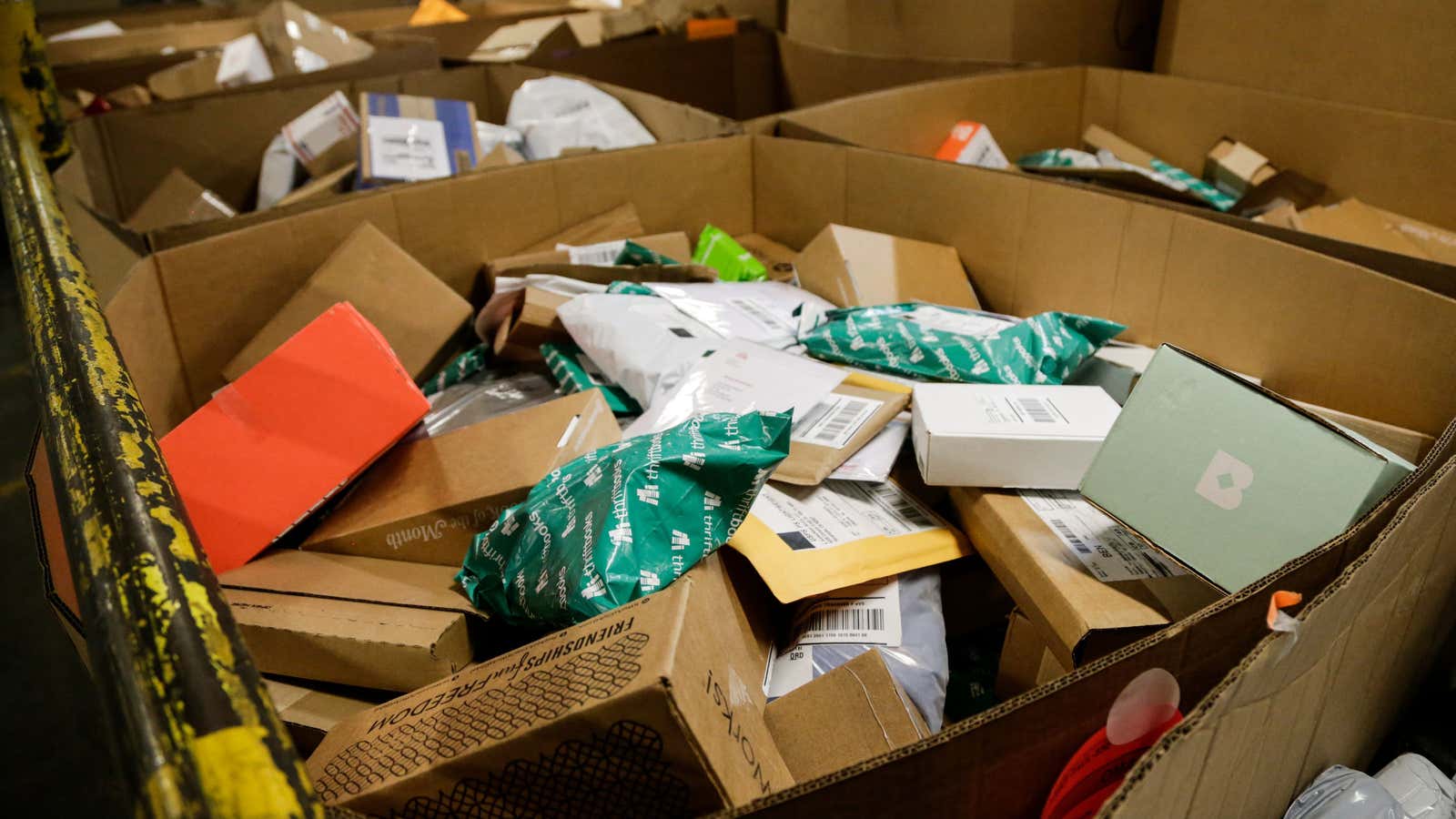The idea behind Shyp was delightfully simple. Instead of digging around for a box or schlepping to the post office to ship something, simply hand it to a courier at your door for Shyp to custom package and send away, all for the low cost of $5 per pickup.
Customers loved it. But as early as 2016, even CEO and co-founder Kevin Gibbon was a little concerned about the business model’s sustainability.
“We charge a $5 pickup fee, and that includes the packaging and coming to your home,” he told a reporter. “It actually doesn’t sound like it makes a lot of business or financial sense. It doesn’t.”
Unfortunately, he was right. On Tuesday, Gibbon announced the company’s immediate closure in a LinkedIn post. In it he reflects on Shyp’s history and the decisions that, in hindsight, contributed to its demise. The document is both self-aware and savvy: by publicly reckoning with his own mistakes, Gibbon pre-empts critics and positions himself and former employees for the next opportunity in a start-up culture that celebrates failure (or claims to, anyway.)
After recounting the heady early days of the company’s success, Gibbon notes his first error: believing Shyp’s own hype.
Along with the initial explosive growth came the comparisons to Uber—from investors, customers, the media, even random people on the Internet. From a growth standpoint, who wouldn’t want to be compared to Uber? In a handful of years, Uber had transformed the way consumers thought about transportation. We could do the same, I was told. And I believed it. The numbers told a story and I became fixated on that story.
His next mistake: failing to heed advice and adapt the business model accordingly. Tales of founders who achieved wild success after bucking their advisors are compelling. Unfortunately, history doesn’t record the many, many examples of companies that fold after taking the same path. Gibbon’s admission helps correct that imbalance.
People close to me and the business began to warn that chasing consumers was the wrong strategy. After all, how often do consumers ship things? I didn’t listen. . . . While I did heed the advice eventually, I can say with certainty not doing so sooner is my biggest regret. It’s easy to be drawn to the allure of stories where founders didn’t listen to advice and benefited from it, and I was definitely guilty of that. It clouded my judgment.
Eventually, the company reconfigured its model to focus on the more lucrative small business market. Gibbon was reluctant to let go of unprofitable parts of the business that customers nonetheless loved. It’s understandable from an emotional standpoint—those loyal, enthusiastic customers were an important part of the company’s origin story. In retrospect, he writes, that emotional decision cost dearly.
About two years ago, we reallocated resources and shifted our focus to a more profitable customer cohort: small businesses. But, we decided to keep the popular-but-unprofitable parts of our business running, with small teams of their own behind them. This was a mistake—my mistake. While large, established companies have the financial freedom to explore new product categories for the sake of exploring, for startups it can be irresponsible.
In an effort to save the flailing company, Shyp introduced drastic cost-cutting measures last summer. The company did indeed turn around and start generating revenue, but it was already too late. The company was unable to secure funding it needed to continue and was forced to close.
The progress was exciting, thrilling even, to everyone involved with the business—if only we’d made it sooner. Unfortunately, our earlier mistakes had left us with too little runway and insufficient resources to continue pursuing the new direction.
Gibbon closes with something that’s surprisingly absent from many public apologies: an actual apology.
My early mistakes in Shyp’s business ended up being prohibitive to our survival. For that, I am sorry. I’m sorry to the world-class team who joined me on this journey—together, we boxed so many shipments that we could’ve blanketed San Francisco with cardboard 4.5 times. I’m sorry to the hundreds of thousands of customers who validated our idea by shipping enough packages to circle the earth half a million times over. I’m sorry to all of the investors and partners who have always rooted for us, and whose advice I sometimes ignored. I am grateful and humbled to have met and worked with you all.
